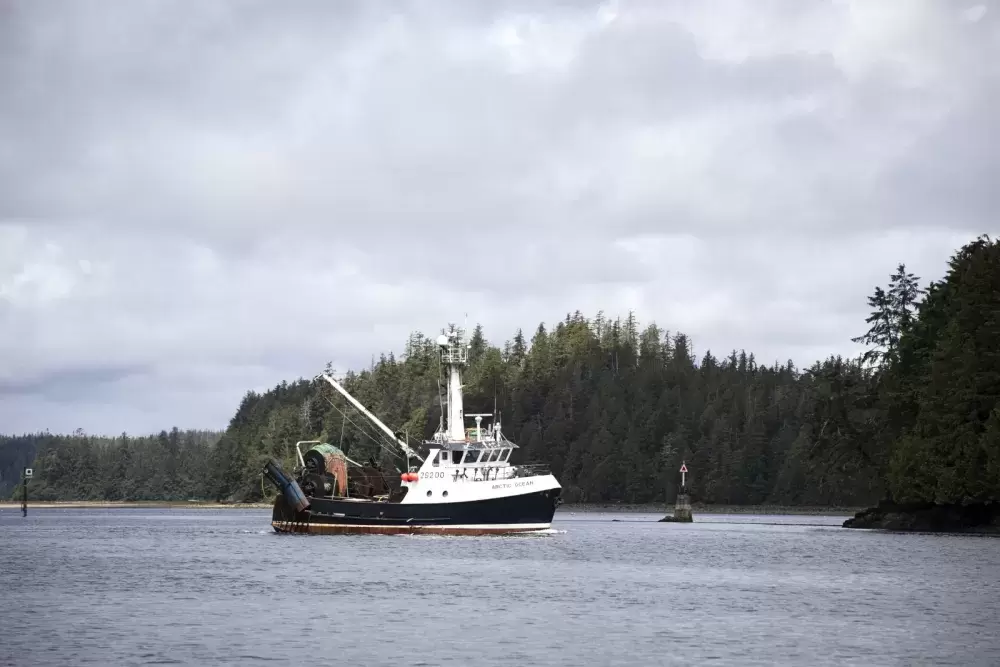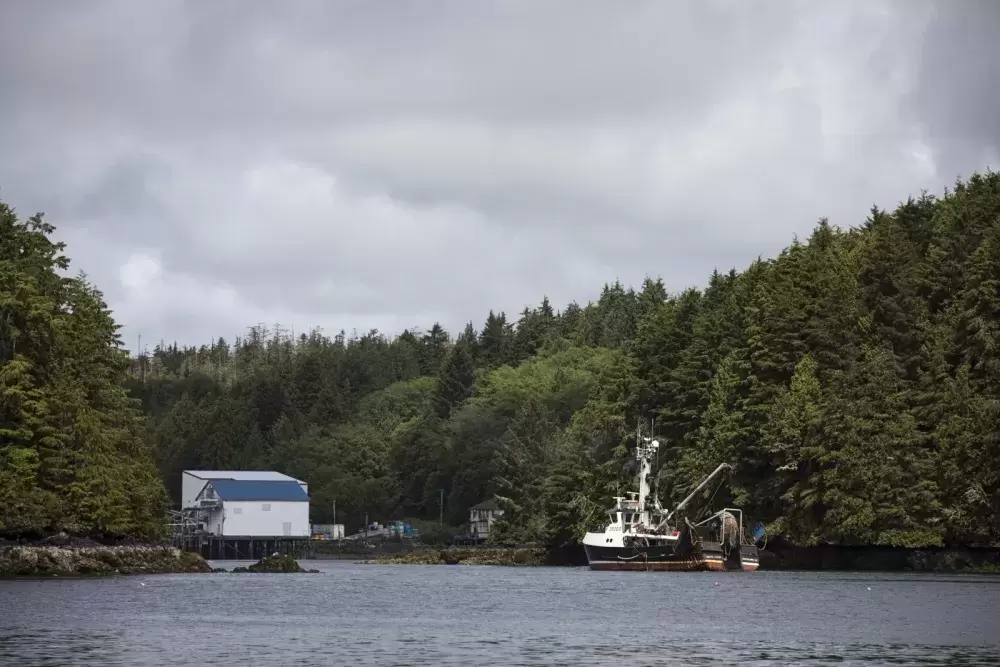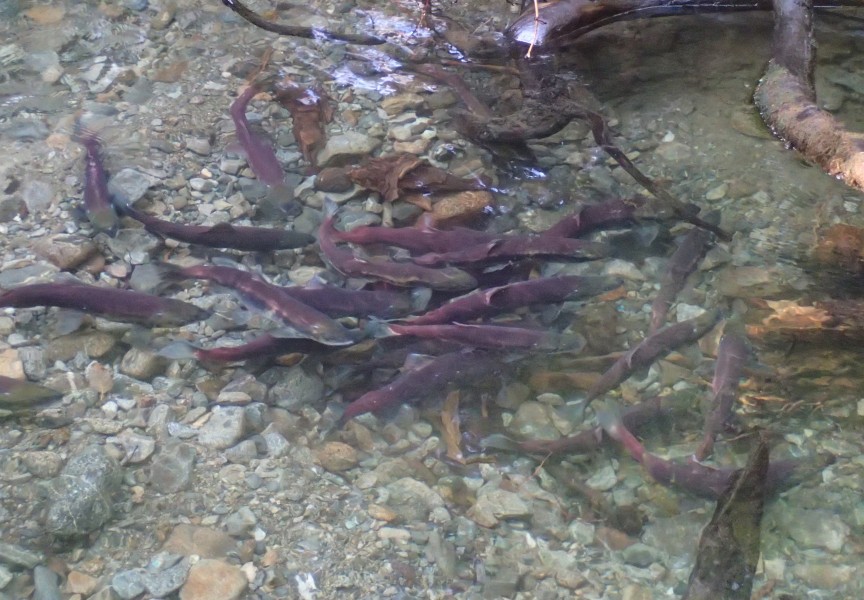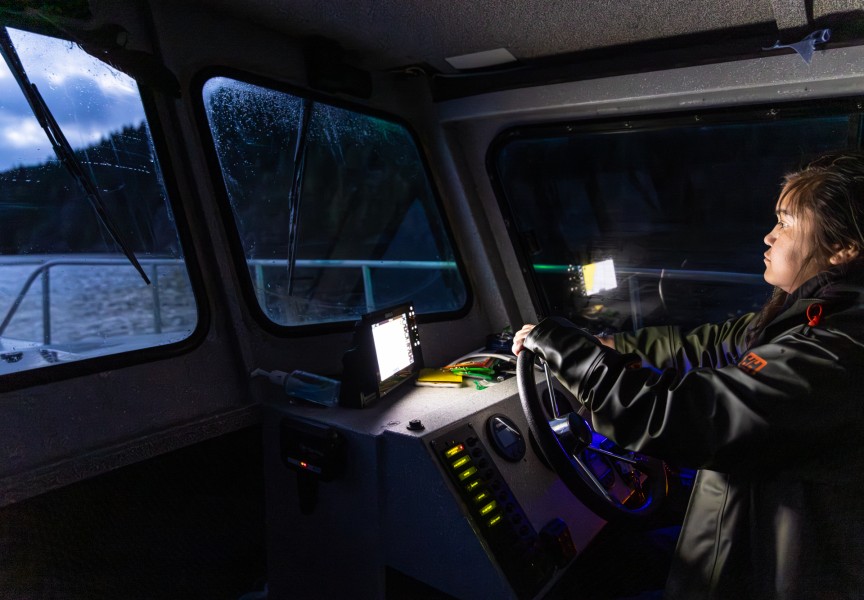As the latest effort to help those who subsist off of the ocean, a new program aims to empower people seeking opportunity amid a challenging climate for the commercial fishing industry.
The goal of the Seafood Business Accelerator program is to provide self-employed fishers and farmers skills to become self-sufficient businesses and food providers. The initiative was announced in January, a partnership from Vancouver Island University’s Centre for Seafood Innovation and the BC Commercial Fishing Caucus, with additional funding from the Island Coastal Economic Trust.
Running for four months, the program will provide seafood-specific training to 20 applicants. Among the training will be early business coaching and food industry specialization.
“Small-scale harvesters have huge socio-economic importance in B.C.’s coastal communities and their inability to compete has led to a declining number of harvesters,” says Debra Hellbach, manager of Vancouver Island University's Centre for Seafood Innovation in a press release. “This reality has had a major impact on the Indigenous and non-Indigenous rural and remote coastal communities where they are based. Our new program endeavours to address this issue with practical support.”
According to the Island Coastal Economic Trust, there are approximately 1,900-2,000 small-scale harvesters within the province, all of whom are competing with national and international companies. The organization believes that training provided by the accelerator program will give participants a leg up that they do not currently have.
Training will be provided through workshops and webinars on topics such as food industry and business advice, as well as expert-in-residence sessions that will cover product development, marketing, financing, or other participant needs. Successful completion of the program will provide participants with a business plan, as well as a product or prototype to show to buyers or investors.
The announcement of the program comes less than a month after Fisheries and Oceans Canada announced another wave of commercial salmon fishing license buy backs. The Pacific Salmon Commercial Licence Retirement Program, as it is known, is the latest phase of the Pacific Salmon Strategy Initiative (PSSI), which aims to slow the decline of populations of the species on the West Coast. The department also announced that the Pacific Salmon Indigenous Communal Commercial Licence Alternation Program will begin rolling out in stages in the coming months, a long-winded name for a program which aims to support First Nations transition from salmon licenses to other commercial avenues. At the time of writing, details on this program have not been announced.
As a salmon fisher who started harvesting independently as a child, Andy Webster has lived through the decline of the commercial fishing industry.
“I was about 10 years old when I first took off with my mom’s canoe, when there used to be a canoe fishery in front of the village,” recalled the Ahousaht member. “I’ve got about 65 years under my belt.”
Webster remembers being pulled out of bed by his father to go fishing, a tough “work ethic” education that the lifelong fisherman came to appreciate with age.
“It always really annoyed me because a lot of my friends were staying at home, having a good time in the summertime and I would be out fishing with my dad,” he said. “In my growing up years he showed me how to operate a boat. That was before GPS, he’d make me sit with him when we were travelling in and out of the harbours, show me where the rock piles and reefs were. He was teaching me continuously.”
But as the decades passed Ahousaht’s number of commercial boats declined, part of a generational transition that, sadly, prevented Webster from carrying on the tradition with his two sons. Now Webster harvests for part of the year with his nation’s Taaq-wihaaq rights-based fishery, after retiring his Area G commercial licence years ago.
“It was to the point where I fished by myself for four or five years with no crew because it wasn’t viable. I wasn’t even able to pay a living wage to my sons,” he said. “My boys, one is in construction, the other one is a bus driver in Nanaimo.”
By providing training focused around other seafood sources, the Seafood Business Accelerator aims to help bridge the gap for those currently operating as commercial salmon harvesters as they move into new money-making ventures.
The problem of declining salmon populations has been on the minds of researchers for some years now. University of British Columbia Zoology Professor Dr. Eric Taylor has been running a website since 2019, detailing salmon populations in an accessible way. He notes that, between 2013 and 2019, the number of salmon caught in British Columbia’s waters dropped from approximately 15.6 million to 1.4 million, according to numbers provided by the North Pacific Anadromous Fish Commission.
Island Coastal Economic Trust Board Chair Aaron Stone says in a statement that “[w]e are honoured to be part of such a valuable effort that will have profound economic ripple effects in coastal communities and also help establish new business relationships that last well into the future.”
The Seafood Business Accelerator program is currently accepting applicants to a wait list. Those interested can apply for the wait list and to receive more information through the Centre for Seafood Innovation’s page on Vancouver Island University’s website.








